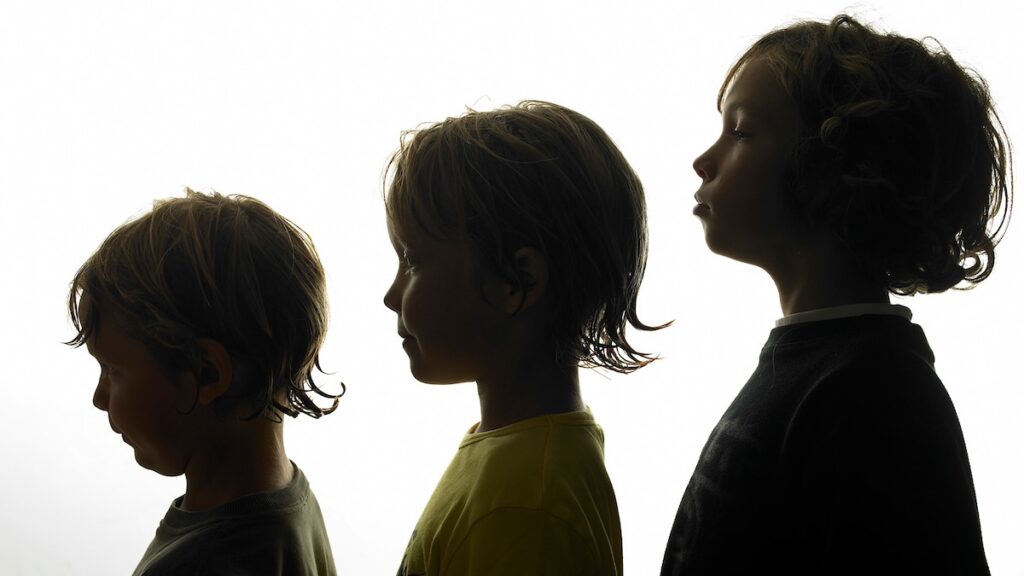
The Impact of Birth Order on Siblings: Exploring Personality and Relationships
The concept of birth order and its influence on personality and relationships has fascinated psychologists and researchers for decades. While not a definitive predictor, birth order can offer valuable insights into how individuals develop and interact within their families and beyond. Understanding the dynamics of siblings and the potential impact of being the eldest, middle, youngest, or only child can provide a framework for navigating interpersonal relationships and fostering greater self-awareness. This article delves into the complexities of birth order, exploring the commonly associated traits and behaviors, examining the scientific evidence, and offering practical advice for parents and individuals seeking to understand its influence. The interplay between birth order and various other factors, such as parenting styles, family dynamics, and cultural influences, also plays a crucial role in shaping an individual’s personality and life trajectory. The relationship between siblings is unique and complex, and birth order is just one piece of the puzzle.
Understanding Birth Order Theory
The foundation of birth order theory lies in the idea that children within the same family experience different environments based on their position in the sibling hierarchy. Alfred Adler, an Austrian psychiatrist and one of the pioneers of individual psychology, first proposed the concept. He argued that each child occupies a unique niche within the family system, leading to distinct psychological development. The eldest child, for instance, often experiences a period of undivided parental attention before the arrival of a younger sibling. This initial experience can shape their personality and expectations.
The Firstborn Child
Firstborn children are often characterized as responsible, conscientious, and achievement-oriented. They tend to be high achievers, leaders, and rule-followers. Parents often place high expectations on their firstborn, leading them to develop a strong sense of responsibility and a desire to please. They are often the ‘mini-adults’ in the family, helping to care for younger siblings and taking on more responsibility at an earlier age. However, they may also experience more pressure and anxiety due to these expectations.
- Traits commonly associated with firstborns:
- Responsible
- Conscientious
- Achievement-oriented
- Leaders
- Rule-followers
The Middle Child
Middle children often navigate a unique position within the family. They may feel overlooked or squeezed between the accomplishments of the firstborn and the perceived indulgence given to the youngest. As a result, middle children are often described as adaptable, independent, and peacemakers. They may develop strong social skills and a desire to mediate conflict. They often seek attention outside the family, forging strong friendships and building a support network beyond their immediate siblings. They might also be more rebellious than their older siblings, seeking to differentiate themselves and establish their own identity.
- Traits commonly associated with middle children:
- Adaptable
- Independent
- Peacemakers
- Social
- Negotiators
The Youngest Child
Youngest children are often characterized as charming, outgoing, and attention-seeking. They may be pampered and indulged by their parents and older siblings, leading them to develop a playful and carefree attitude. They are often creative and expressive, enjoying the attention and support of their family. However, they may also struggle with independence and may be perceived as less responsible than their older siblings. The youngest child often benefits from the experience of their older siblings and may learn more quickly by observing their mistakes and successes. [See also: Sibling Rivalry: Causes and Solutions]
- Traits commonly associated with youngest children:
- Charming
- Outgoing
- Attention-seeking
- Creative
- Carefree
The Only Child
Only children often share characteristics with both firstborns and youngest children. They receive undivided parental attention and may develop strong intellectual abilities and a high degree of self-reliance. They are often mature for their age and comfortable spending time alone. However, they may also struggle with sharing and may have difficulty navigating social situations with peers. Only children often develop close relationships with adults and may excel in academic pursuits. The absence of siblings can sometimes lead to a heightened sense of self-importance and a lack of experience in negotiating with peers.
- Traits commonly associated with only children:
- Self-reliant
- Mature
- Intellectual
- Independent
- Perfectionistic
Scientific Evidence and Criticisms
While birth order theory remains popular, it has also faced significant criticism from the scientific community. Some researchers argue that the effects of birth order are often overstated and that other factors, such as genetics, parenting styles, and socioeconomic status, play a more significant role in shaping personality. Meta-analyses of numerous studies have yielded mixed results, with some finding weak correlations between birth order and certain personality traits, while others find no significant relationship at all. The complexity of human behavior and the myriad of factors that influence development make it difficult to isolate the specific impact of birth order. Furthermore, many studies on birth order have been criticized for methodological flaws, such as small sample sizes and a lack of control for confounding variables.
However, some researchers argue that while the effects of birth order may be subtle, they are still present. They contend that the unique experiences associated with each position in the sibling hierarchy can shape an individual’s worldview and influence their interactions with others. The influence of birth order may be more pronounced in some families than in others, depending on the parents’ parenting styles and the overall family dynamics. More rigorous and well-designed studies are needed to fully understand the complex relationship between birth order and personality.
Factors Influencing Birth Order Effects
Several factors can moderate the impact of birth order on personality and relationships. These include:
- Parenting Styles: Authoritative, authoritarian, permissive, and uninvolved parenting styles can all interact with birth order to shape a child’s development.
- Family Size: The number of children in a family can influence the dynamics between siblings and the attention each child receives.
- Spacing Between Siblings: The age gap between siblings can affect the level of competition and cooperation within the family.
- Gender: The gender composition of a family can also play a role, with different dynamics emerging between same-sex and mixed-sex siblings.
- Cultural Influences: Cultural norms and expectations can shape the way parents treat their children based on their birth order.
- Socioeconomic Status: Access to resources and opportunities can influence a child’s development, regardless of their birth order.
Practical Implications and Advice
While birth order is not a destiny, understanding its potential influence can be helpful for parents and individuals alike. Here are some practical tips:
- For Parents: Be mindful of treating each child as an individual, recognizing their unique strengths and needs. Avoid making comparisons between siblings and strive to create a fair and equitable environment. Foster open communication and encourage siblings to support and respect each other. Recognize that each child experiences the family dynamic differently based on their birth order.
- For Individuals: Consider how your birth order may have shaped your personality and relationships. Reflect on your experiences within your family and how they may have influenced your beliefs and behaviors. Use this self-awareness to improve your communication and build stronger relationships. Don’t let your birth order define you; focus on developing your individual strengths and pursuing your goals.
Conclusion
The impact of birth order on siblings and their personalities is a complex and multifaceted topic. While the scientific evidence is mixed, the concept of birth order can provide valuable insights into family dynamics and individual development. By understanding the potential influences of birth order, parents and individuals can foster greater self-awareness, improve communication, and build stronger relationships. It’s crucial to remember that birth order is just one piece of the puzzle, and other factors, such as genetics, parenting styles, and cultural influences, also play a significant role in shaping who we become. The relationship between siblings is a unique and enduring bond that can shape our lives in profound ways. Therefore, understanding the nuances of birth order can contribute to a more empathetic and informed approach to family relationships. The lasting impact of birth order is undeniable, shaping our perspectives and interactions throughout life.

